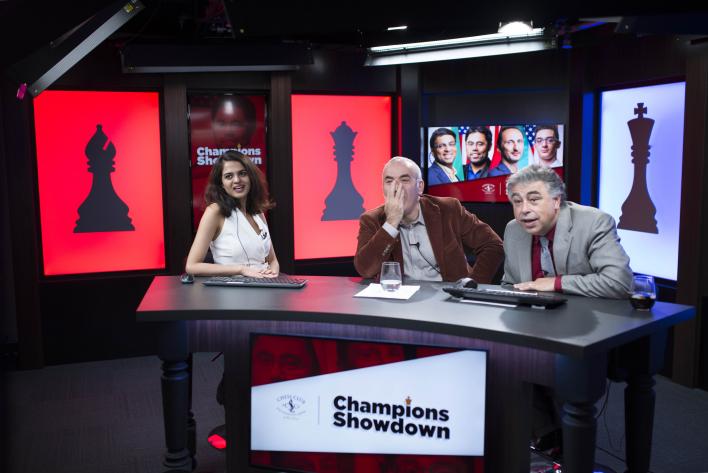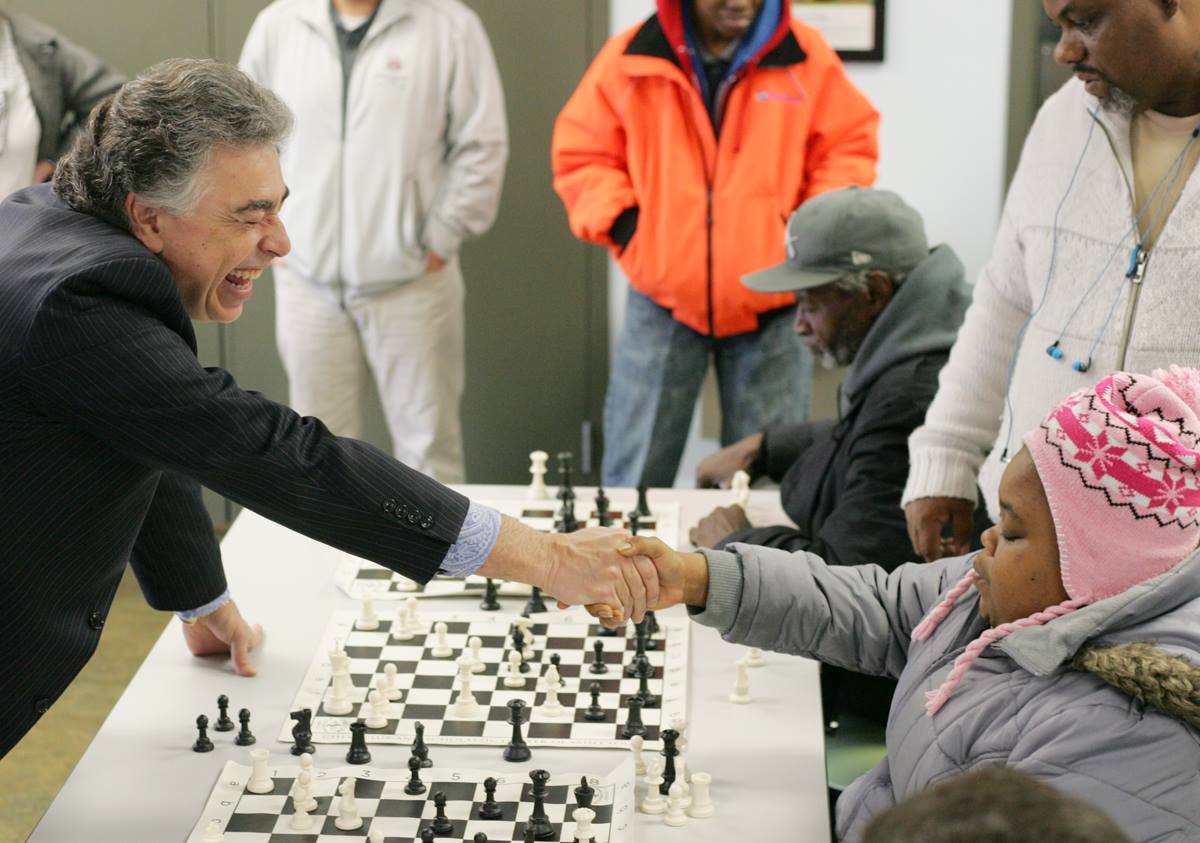
by GM Yasser Seirawan
Dear Saint Louis Chess Club and Scholastic Center members,
“It was the best of times, it was the worst of times, it was the age of wisdom, it was the age of foolishness, it was the epoch of belief, it was the epoch of incredulity,…” Thus began the famous opening paragraph of Charles Dickens’ novel, A Tale of Two Cities.
This is a good way to describe by most recent stint (November 14-December 4, 2016) as GM-In-Residence for the Club. It was wonderful to be back meeting with the Staff and Club members, performing lectures, coaching, and giving private lessons. The Club is thriving, with more tournaments, events and activities than ever before. In Missouri speak, “awesome.”
The first week of my visit featured an elite quadrangular tournament: two former World Champions, Viswanathan Anand and Veselin Topalov were joined by America’s two highest rated players, Fabiano Caruana and Hikaru Nakamura. It was a fantastic clash of giants with everyone having outstanding moments. The “Showdown” in Saint Louis featured an innovative format of classical, rapid and blitz games, with a twist. The classical games were only two hours in length, with each side having sixty minutes with a five second delay. Most elite events today feature “bonus time”: thirty seconds are added to your clock in classical games; ten seconds for rapid; a second, two seconds for blitz for each move made. If you think about it, this bonus time is unique compared to all other sports. Football and basketball in particular are sports where the clock is the ruthless enemy. There are no plays in those sports where time is added. In boxing, there is an often heard expression, “Saved by the bell.” Hence, the attraction to innovate with delay time controls. Clearly, we want the players to physically move their pieces or remove their opponent’s pieces in a proper manner, leaving the piece or pawn behind in the center of the square. In short, to have enough time to physically make the move in a dignified manner. When bonus time is added, it can cause confusion: someone new to chess could be told, “such and such a player is in a bad way, he is way behind in time.” Then a few quick moves are played and the new fan realizes that a player has gained a minute or more and is no longer in “time trouble” and rightfully confused.
The Showdown and its innovative format were well received. The delay meant that the players could play their moves calmly and unhurried, keeping decorum on the board at all times. In the end, it was about Vishy. Vintage Vishy. He played smoothly throughout all the disciplines and was the deserved winner.
Then for week two the Club hosted two “norm” events for the rank and file. Akshat Chandra played impressively to score his third and final Grandmaster norm and earn the rank of Grandmaster. Hearty congratulations to Akshat! In the IM norm tournament, two IM norms were earned: FIDE Masters Le Fong Hua (Canada) and Konstantin Kavutskiy both scored 6.5 points from nine games to earn their IM norms. Both in dramatic fashion.
While these three tournaments were happening, they overlapped with the crown jewel of the chess world: the World Chess Championship match, which was played in New York City. Did I mention that it was the ‘best of times’? The World Championship match garnered a lot of mainstream media attention, as well as millions of chess fans around the world that watched online.
So why do I think it was the ‘worst of times’ as well? Here we have to pause for a moment to remind ourselves that chess has – for the whole of my career – suffered a dearth of sponsors. Our noble sport has struggled to have a television breakthrough that would enable it to garner major commercial sponsors. The dream of the chess world is that if chess received more attention it would also receive more sponsors. I’ve often said myself that, “For the good of chess, I should be a millionaire.” With the right set of circumstances, the world would be moved to discover the delights of this historic game. Chess would therefore be a top ESPN-featured event.
In my third and fourth week as GM-in-res, we flash forward to a tough, highly contested close World Championship match. After 11 Games of play, the score is tied 5.5-5.5. For the 12th and final game, the drama could not have been any higher. Would defending Champion, Magnus Carlsen, go all in with the white pieces for the final game to pull out an incredible come-from-behind victory? Or would challenger, Sergey Karjakin, withstand the assault and counter-attack with wicked precision? In the same way that brought him victory in Game 8. While Russian fans and Norwegian fans held their collective breath Game 12 unfolded.
With the media, as well as the whole chess world watching, tension was palpable; unfortunately, the game was a huge let down. After a mere thirty-five minutes of play, pieces were carefully traded off the board and simply nothing happened at all. No tactics, no attacks, counters, traps or pitfalls of any kind. An epic dud. The match would go into overtime or more simply rapid and blitz tiebreaks would decide the classical chess championship. Our biggest moment in the sun, for years, having garnered the attention of the world’s media gave birth to a non-effort. We fell on our collective face. I call it, “the thirty-five-minute punch.” Suddenly it felt like the worst of times. Why would sponsors, witnessing such a performance be clamoring to host the next great event? Simply they won’t. The rules for the world championship match need to be reconsidered. We will simply have to do better in the future.
May all your sacrifices be sound,
Yasser Seirawan



